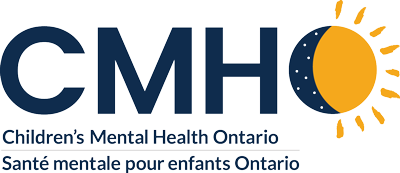A Return to School for All Children and Youth
Children’s Mental Health Ontario is a strong advocate of the return to school for children because we believe that in-class learning is key to children’s development and mental health. We believe that schools should be the last to close and the first to open because long-term school closures can harm the mental health and development of children.
We are encouraged to see that all schools across Ontario will be open again today. But we are fully aware that a return to class will not be a risk that some families feel they can take. As an organization that advocates on behalf of the mental health of all children in Ontario, this is a matter of deep concern.
Our most vulnerable not returning to school
Among those not returning to school are our most vulnerable. They are families whose children suffer severe mental illness or have complex medical issues and disabilities. They are also children of families who have a parent or grandparent living with them who is vulnerable to COVID-19. Many are children from racialized, marginalized, and low-income families.
We have heard from many of these families that they feel left behind when it comes to in-class learning.
In-class learning for all children should be a priority – and the road map to making this possible has been clearly outlined by SickKids in its COVID-19: Guidance for School Operation during the Pandemic.
SickKids notes that schools need supports around expanded number of personnel, ie teachers and cleaners, opportunities for adaptation of curricula to expand outdoor education, supplies of PPE. It also notes that large class sizes, small classrooms, and poor ventilation, must be addressed as a part of any plan to reopen schools. More recently, SickKids added calls for robust testing, more physical distancing for older students, and strict cohorting for younger kids.
With these measures in place, SickKids states that school would be safe for all kids – even those with vulnerabilities. However, on many of these points, parents and caregivers, as well as educators, do not feel enough has been done to achieve this. As a result, many families have not/ will not return to school again.
Over this recent time of school closures and remote learning, we know that online learning works for some children, but it certainly does not work for all. Remote learning has been especially hard on children with anxiety who feel pressure to learn in a way that is not natural to them. It has been hard on teens suffering depression who are struggling to leave their rooms. It has been hard on the mental health of parents and caregivers who are struggling to support their kids and keep their jobs.
For many families, remote learning is not a reasonable option, but it is the only option they feel they have.
These families need access to supports, including child and youth mental health services in their community. We can’t let them fall through the cracks when it comes to support.
Increased need for community supports
Our child and youth mental health centres remain a front-line service across Ontario, and some of our centres are reporting calls to their walk-in clinics have doubled. They are seeing more severe cases of mental illness, including dramatic increases in the number of children coming to hospitals with eating disorders. There has been a disproportionate impact on low-income and racialized families who are experiencing even greater impacts on their mental health.
Prior to the pandemic, there were 28,000 kids on wait lists across Ontario, waiting for child and youth mental health services. Through the pandemic our children and youth have faced incredible challenges, isolation, disruptions and delays or cancellation of health services. The need for mental health services has become greater and more widespread.
Children’s Mental Health Ontario is calling on the provincial government to further invest in child and youth mental health. We must make it possible for children, youth, and families to get the help they need, when and where they need it. We don’t think that families should have to wait longer than 30 days for their kids to begin receiving treatment for mental health issues.
These 30 days matter because when kids are not treated in a timely manner, their symptoms worsen, jeopardizing their futures. What may have begun as a mild symptom can rapidly evolve into an emergency. There are critical windows during a child’s development where treatment must occur and if missed, the opportunity for early intervention is lost. Without timely care, mental health challenges can follow children into adulthood.
Now, more than ever, our most vulnerable children and families need our support.


0 Comments